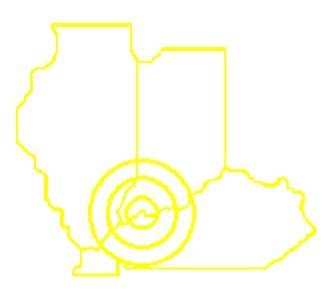
In my last blog post, I shared my honest review of Fold3. This time, I want to share my thoughts on yet another paid subscription genealogy website–Newspapers.com.


What sort of content can you find on Newspapers.com? Well, hence the name, newspapers galore! You’ll have the opportunity to explore newspapers from all across the United States. You might even spot newspapers as old as the 1700s or as recent as the 2000s.


At Newspapers, there are two membership options. “Newspapers.com Basic,” the cheapest package, includes over 215 million newspapers dating back to the 1690s. The price of a 6-month “Newspapers.com Basic” subscription is currently $44.95, if you don’t catch it on sale. Or you can pay $7.95 per month for the basic membership.
If you choose the more expensive option, called “Newspapers.com Publisher Extra,” you’ll have access to everything that’s included in the “Newspapers.com Basic” plan, plus 547 million additional pages. The 6-month subscription does bear a larger price tag, as the standard price (not on sale) is $74.90. Or you can pay $19.90 a month. Keep in mind that both options go on sale pretty regularly, so if you have the patience you might want to snag your subscription at the sale price!
If you’re wondering which subscription plan might better fit your needs, read on!


With two different plans to choose from, you might be wondering which option is the best for both your budget and your researching needs. I’ve used both the basic and the advanced membership option, and which option to choose largely depends on what you hope to find out.
When I was a member with the basic membership option, there were lots of newspapers available to view. I was able to explore a slew of newspapers from states like New York and even Nebraska, dating back to the 19th century. However, when it came time to research some of my family that lived in states like Kentucky, I hit a snag. Most Kentucky newspapers were available to members with a “Publishers Extra” subscription only. This was especially true of newspapers published in more rural areas.
After upgrading to the “Publishers Extra” package to access every newspaper, I was glad to have the option to view every document. Plus, it alleviated the pesky prompt to upgrade to the “Publishers Extra” package every time I clicked on a paper I didn’t have access to with my basic membership.
Really, choosing the basic or advanced membership option comes down to two factors: (1) how much you want to spend and (2) how much information you want to find. If you have the funds to purchase the Publishers Extra package, I’d highly recommend it! That said, if you don’t want to shell out the extra money (which is understandable!) or you’re new to Newspapers and just want to navigate the site, then the basic membership might be for you.
Of course, cases do vary, so what worked best for me might not work well for you, and vice versa. A tip, though, is to never subscribe to genealogy sites (Ancestry, Fold3, and Newspapers) until they go on sale. I was able to catch my Newspapers.com Publishers Extra subscription at just under $30. You’ll get much better rates for on-sale products, and sale options are offered pretty regularly. I’ve noticed that the best sales usually happen around the holidays, including Christmas, Independence Day, and even Memorial Day!


Out of Ancestry, Fold3, and Newspapers, I’ve been with Newspapers.com by far the shortest amount of time. When I first started out with Newspapers, I’ll admit that I was pretty clueless as to research tactics. Now, however, I’ve found ways to narrow my search, and these tactics have brought some amazing information!
A good starting tip is to research names and/or phrases in quotation marks. For example, I was once researching an ancestor named Joseph Stewart Carneal. When I searched his name without quotation marks, I received a variety of returns, and some were completely unrelated. However, when I searched “Joseph Stewart Carneal,” the only returns yielded where ones that matched my phrase nearly exactly. If you want to condense your search, always place quotation marks (“”) around your ancestors’ names! (See example below.)

My next tip is to be flexible with name spellings! I’ve found that searching by initials (ex. “J S Carneal”) yields more results. Sometimes, searching by your ancestor’s middle name (instead of first name) is helpful. Also, consider potential misspellings and search that way. If you have a hard time spelling your ancestor’s name, chances are the newspaper editor might have, too! Don’t forget to look up your ancestor’s nickname. When I’ve researched individuals, I’ve seen their nicknames listed plenty of times. In some communities, a nickname became as accepted as the person’s real name. That’s why it’s extra important to be flexible and research your ancestor’s name a slew of ways. (See example below.)

My last tip is to narrow the dates that you’re searching! Let’s say you want to find information about a family member who fought in World War II. Maybe the only information you want is about their role in World War II–you don’t want any information about their birth, marriage, death, etc. Condense your search using the optional area on the search bar for dates. For World War II soldiers, I usually search for newspapers from 1940-1946, going a year or two broader than where I believe information may be found. Using this research tactic, I ensure I get only World War II-era information, not returns from every newspaper they’ve ever been featured in. Bonus tip: You might want to narrow the location, too. Remember for veterans, though, that they might appear in another state’s newspaper, depending on where they were stationed. I just researched a World War II veteran from Kentucky who showed up in a South Dakota paper, all because that’s where he was stationed while in the military. Flexibility is always key! (See example below.)



Censuses are great, as are military documents, but a newspaper often offers up a nugget of information you can’t find elsewhere. Using Newspapers.com, I’ve been able to find my ancestors’ political affiliations, discover when they traveled out of town, or even learn more about a pivotal moment in their life. Even while researching my family, I’ll sometimes stumble across an event noted in the newspaper (like a natural disaster) that’s never included in the history books. Newspapers help make the history come alive, offering detailed information from right when it happened all those years ago.
All of these are HUGE pros of Newspapers.com! It’s hard to beat the information one can find in primary source documents, like newspapers.


Besides the fact that a monthly “Publishers Extra” subscription is almost as pricy as Ancestry.com, there are a few other cons. One is that basic memberships offer a lot less information, so unless the region your ancestors lived in has newspapers included with the basic membership, you almost have to go with the “Publishers Extra” option.
Plus, while the Newspapers site was fairly easy to navigate, it took me a while to figure out research tactics. Without knowing special research tips, your search might be too broad–or too narrow–to offer up lots of information.
Another con is that there were a lot fewer 1860s-era rural newspapers than what I expected. Most of the older newspapers seem to have come from larger cities. Therefore, if your ancestor lived in a rural region years ago and they didn’t do much traveling, they might not have any information on Newspapers.com.


Since I was able to snag a Newspapers.com subscription on sale, I thought my subscription was absolutely worth it! That said, I might be a tad disappointed if I had paid full price for the program, just because many of my ancestors didn’t have information on Newspapers.com.
Considering how many individuals I research (family and non-family alike), I have found Newspapers.com to be an invaluable complement to my Ancestry and Fold3 subscription. Without Newspapers, there is so much information I wouldn’t have regarding my family. However, if you’re not planning on researching many ancestors–and the ancestors you want to research lived in rural areas–you might not find gobs of newspapers about their life. Even so, one newspaper clipping with information about your ancestor can change the way you view them!


Of course, everyone will have a different opinion of Newspapers.com, but I can say I’ve been happy with my subscription. If you’re unsure on whether or not you’ll find information about your ancestor, consider a free trial or order one month of the basic subscription for just under $8/per month. Then, research the ancestors you hope to gather information on. If the newspapers mentioning your ancestors are able to be viewed, that’s great! If they require the more expensive membership to view, weigh your options and decide what might be best for you. You might decide it’s time for a membership upgrade, but if not, at least you gave the basic membership a try. As the adage says, “Nothing ventured, nothing gained!” I’ve found that genealogists who are willing to try new programs are in the position to gain valuable information about their ancestors.

Thanks for joining me as I’ve shared my opinion of Newspapers.com! If you decide to give the program a try, I wish you the best of luck. Don’t forget to check out my Fold3 and Ancestry review, too!
Happy Researching!

Disclaimer: This review is not funded by Fold3, Newspapers.com, or Ancestry.com, as TSGS is not affiliated with any of these businesses. The opinions found within this review do not reflect the views of TSGS as a whole, and cases of the program’s pros and cons will vary.


